Finally, after fifteen minutes of effort, Sloan made it to the water. It was choppy and littered with floating trash but a welcome sight nonetheless. Sloan’s plan was to follow the coast north, paddling at night and hiding during the day. And that should be possible given all the inlets, bays, and lagoons that lay along the coast.
After stuffing his gear into the watertight compartment located aft of the kayak’s cockpit, Sloan replaced the lid and checked to make sure that it was on tight. Then it was time to drag the fiberglass hull down a muddy bank and into the ship channel that led out into the Gulf of Mexico. After laying one of the paddles across the hull, Sloan stood astride the kayak and walked it out into the ship channel. As soon as the tiny boat was afloat, he sat down while bringing his feet up and in.
Then it was time to start paddling. A breeze was blowing in from the east, which forced Sloan to paddle harder than he would have preferred. But after a sustained effort, he managed to propel the kayak past a half-sunken ship and into the open sea.
He was paddling into the waves at first, but the moment he turned north, water slapped the side of the low-lying craft and threatened to swamp it. In order to prevent that, Sloan had to cut the waves at an angle and tack back and forth.
As hours passed, the beach was his constant companion. Any huts that had been on it were gone now… And the only people Sloan saw were occasional fishermen in small boats. Most waved, and he waved back.
Finally, as the light began to fade, Sloan knew it was time to go ashore on a deserted stretch of beach. Once on dry land, he could see where the high water had swept up and inland. Pieces of plastic had been left hanging in the scrub that lined the shore, but the hardy bushes seemed none the worse for wear. After locating a clearing about a hundred feet inland, Sloan went back for the kayak and dragged it up and out of sight. Then he cut a branch and returned to the water, where he backed up the beach and erased his footprints.
Overkill? Maybe, and maybe not. The cartels had been running drugs up that coast for a long time. Would the current set of circumstances bring drug traffic to a stop or cause it to grow? Sloan didn’t know and wasn’t about to run any unnecessary risks.
Once it was dark, Sloan built a small fire, which he used to prepare a simple dinner. Plain though the meal was, it tasted good and served to remind him of the fact that he’d have to find more food and ways to replenish his water supply. The beaches were littered with plastic bottles, but how to fill them? That would require some planning.
After gathering driftwood and constructing a rudimentary shelter, Sloan curled up and managed to sleep in spite of the insects that continually bit him. When morning came, he rose, enjoyed a cup of instant coffee, and wondered why he hadn’t been smart enough to buy toothpaste. The day passed slowly, and he gave thanks for the ever-present clouds. The heat would have been unbearable without them. Finally, after what seemed like an eternity, evening came and it was time for his much-anticipated dinner. Once his stomach was full, Sloan put the fire out and dragged the kayak down to the water.
Thus began what would be a pattern for days to come. Paddle at night and sleep during the day. During that time, Sloan mastered the art of stealing food from fishing camps, looting crab pots, and night fishing. And so it went for nineteen days. During that time, Sloan became stronger and leaner. He still had a couple of pellets in his back. But the wounds had healed, and there were no signs of infection. And that was all he could ask for.
As the twentieth night began, Sloan felt a rising sense of anticipation, knowing that if he hadn’t entered US waters, he would soon. Moonlight filtered down through broken clouds to frost the surface of the gently heaving sea. He was enjoying the beauty of that when he heard a distant rumble and felt a stab of fear.
It wasn’t the first engine he’d heard. Two days earlier, the steady thump, thump, thump of a diesel engine had announced the presence of a dimly lit fishing boat that passed within a hundred feet of the kayak. But this sound was different. The throaty roar belonged to a cigarette boat or something similar. Not the sort of craft a fisherman would use.
So Sloan had reason to be afraid as the noise passed him on the right and sent a succession of waves his way. That made it necessary for him to turn into the other boat’s wake or risk being swamped. But the danger had passed, or so it seemed, until a powerful spotlight split the night. Had someone seen something as the boat passed him? That’s the way it seemed as the blob of light swung left, right, and nailed him. The voice was amplified. “Levante sus manos—y mantenerlos allí!” (“Raise your hands—and keep them there!”)
Shit! Shit! Shit! Sloan dug his paddle into the water in an attempt to escape the light. But it followed him, and Sloan heard a burst of gunfire. White geysers shot up all around him, and there was a thump as one of the bullets punched a hole in the hull. Cold liquid squirted into the cockpit and Sloan struggled to get out. Then the boat was there, looming above him, as a silhouette leaned over to look down at him. “Tirar los peces en. Vamos a ver lo que tenemos.” (“Pull the fish in. Let’s see what we have.”) The journey was over.
CHAPTER 3

And the platoon is the truly characteristic component of an army; it is the lowest unit habitually commanded by a commissioned officer; it is the real and essential fighting unit, whose action conditions that of the other arms and formations; it is a little world in which the relations between the led and the leader, the men and their commander, are immediate, actual, continuous, and entirely real.
—MAJOR M. K. WARDLE
NEAR YAKIMA, WASHINGTON
Mac was familiar with the dream by then and knew she was dreaming it but couldn’t escape. For what might have been the twentieth time, she stood in the hatch and stared upwards as hundreds of tons of rock slid down the side of the mountain to obliterate the second platoon and half of the buses. One moment, they were there, and the next moment, they weren’t. At least a thousand lives had been lost in the blink of an eye. But Lieutenant Robin Macintyre and her platoon were spared. Why? Because, that’s why.
Mac awoke as she always did, with a scream trapped in her throat and her heart pounding. How long would the dreams go on? Until they stop, the voice answered. Deal with it.
Mac eyed her wristwatch. The time was 0436, and the alarm was set for 0500. But she wouldn’t be able to get back to sleep, so why try? Mac turned on the bedside light, pushed the sleeping bag down, and swung her feet over onto the cold floor. The baseboard heater was working but couldn’t counter the chill.
Mac swore, grabbed her robe, and made the trip to the bathroom. The platoon and a collection of other lost souls were headquartered at the Vagabond Army Airfield just outside the city of Yakima. It was a small facility that was normally part of the Yakima Training Center. However, most of that command’s personnel, munitions, and fuel had been loaded onto vehicles and sent east to reinforce Fairchild AFB in Spokane.
Captain Hollister had been killed in the rockslide. His death left Mac in charge and made her responsible for the orders Hollister had been given. That meant Mac was supposed to establish a refugee camp adjacent to Vagabond and prepare to receive more convoys of people even though the east–west highway was blocked, and she lacked the resources necessary to do so. A problem she had repeatedly emphasized via radio but to no avail. JBLM’s answer was always the same: “We’ve got a lot of irons in the fire right now… We’ll get back to you.”
Читать дальше
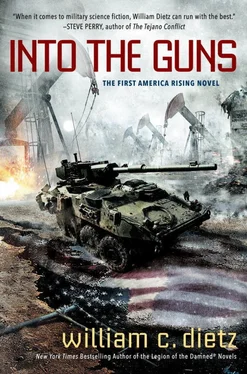

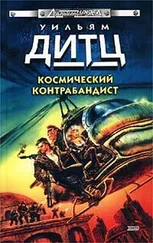
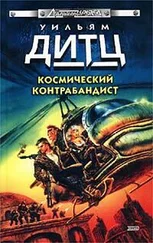
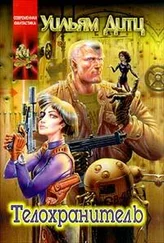
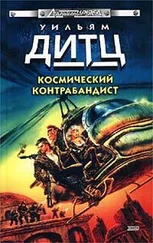
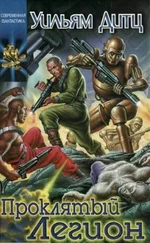
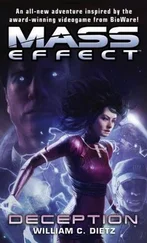

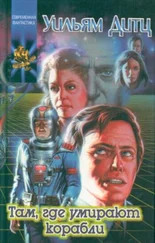
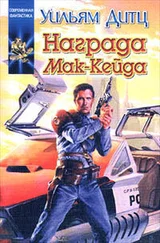
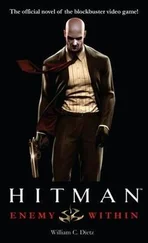
![Уильям Дитц - Избранные произведения в одном томе [Компиляция]](/books/389750/uilyam-ditc-izbrannye-proizvedeniya-v-odnom-tome-k-thumb.webp)
